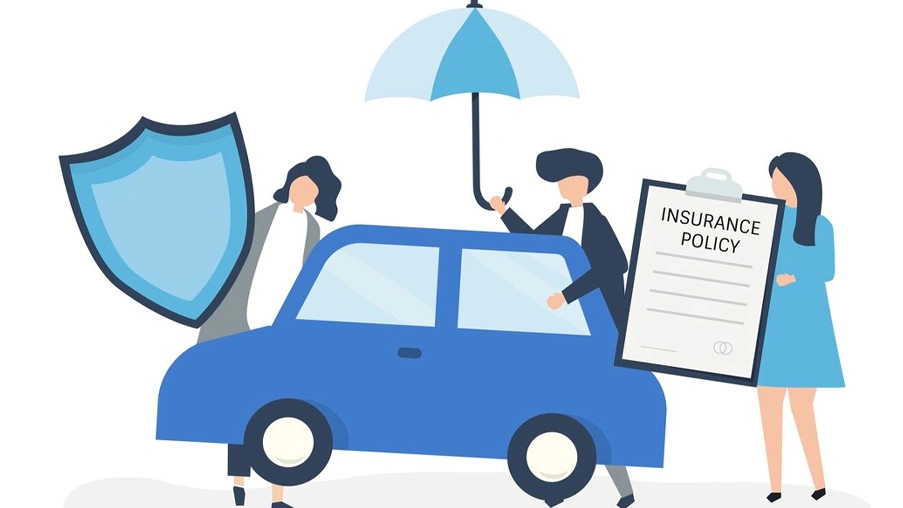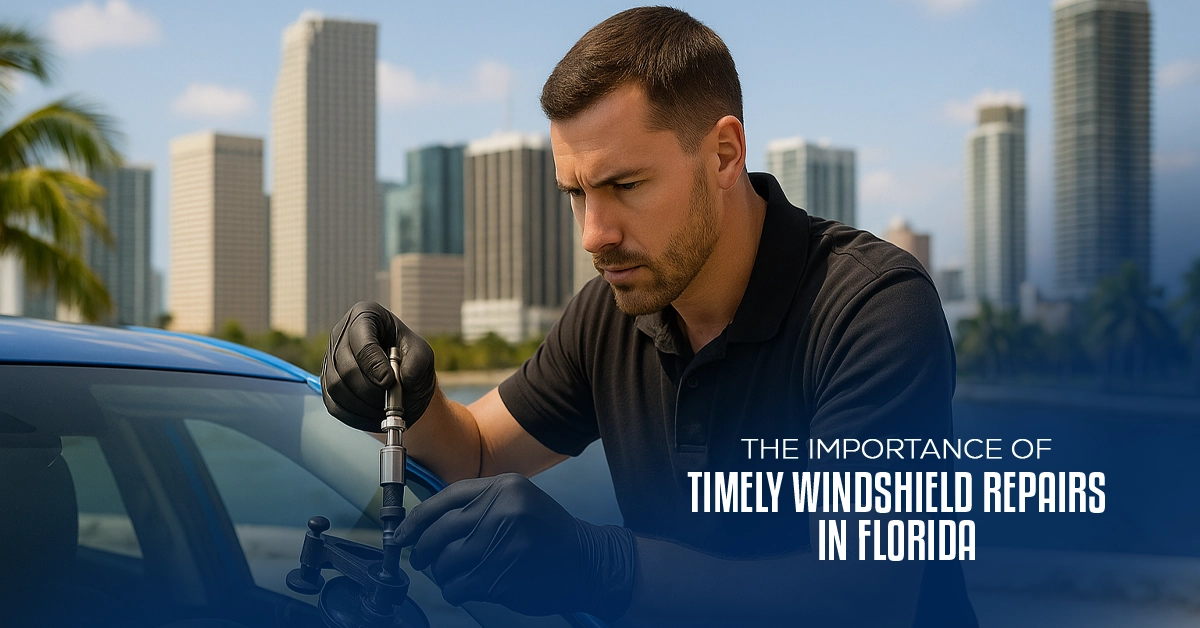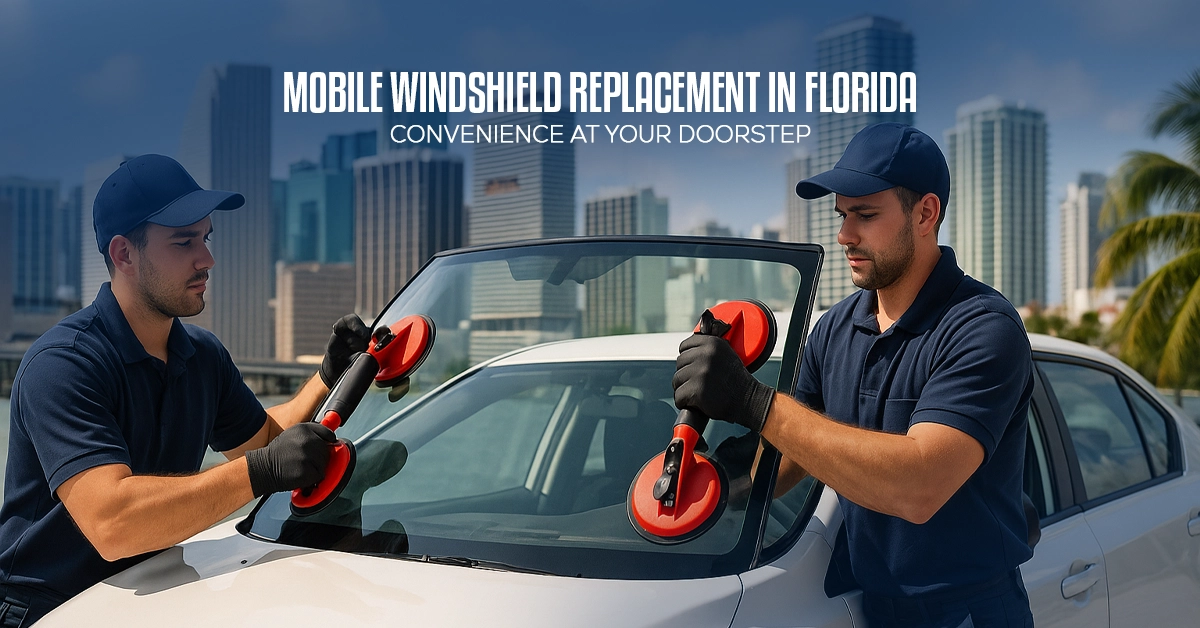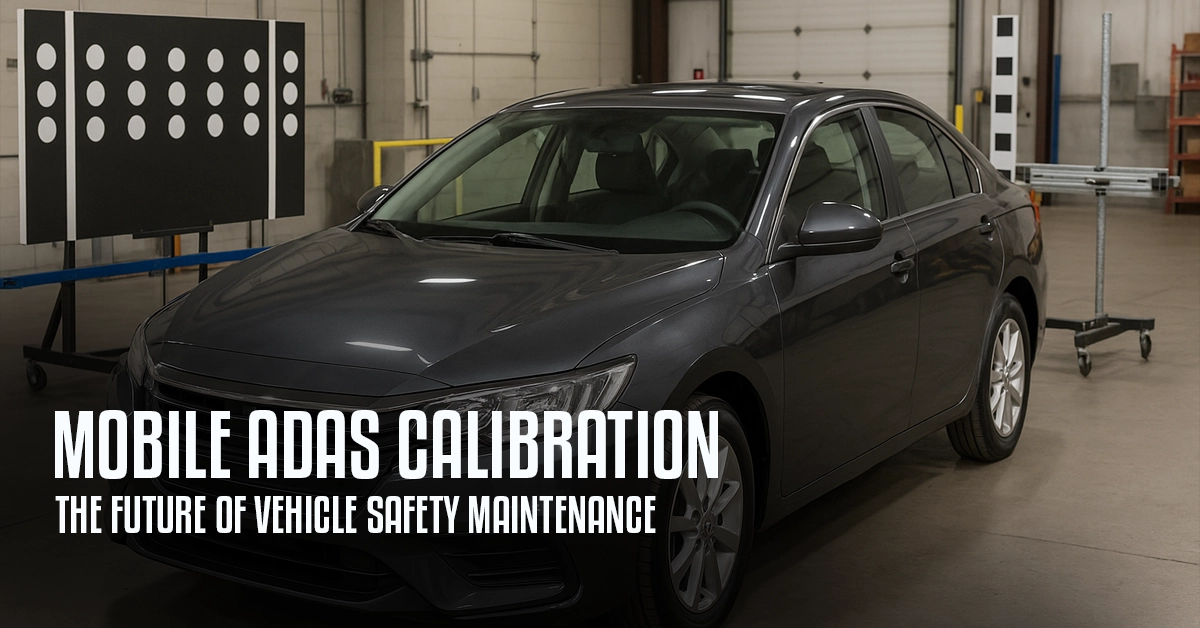Florida Car Insurance Requirements & Coverage
February 17, 2025
As per the law in Florida, every vehicle owner must have a car insurance policy. The state has a no-fault insurance policy mandating Personal Injury Protection (PIP) and Property Damage Liability (PDL) to cover the cost of an accident, regardless of which party was at fault.
However, driving a car without an auto insurance in Florida attracts legal repercussions and fines. Plus, a car insurance policy unburdens financial stress. For example, if in the event of an accident and collision, your car’s windshield is damaged, your insurance policy will cover for emergency auto glass repair and replacement.
This blog will cover Florida’s car insurance requirements, other coverage choices, elements influencing insurance pricing, and how best to select a policy. Knowing these things will enable you to remain safe, compliant, and ready for unplanned road events.
Understanding Florida’s Car Insurance Requirements
Florida law mandates that all drivers carry Personal Injury Protection (PIP) and Property Damage Liability (PDL) before registering a vehicle. These coverages ensure financial protection in case of accidents, regardless of fault.
Up to $10,000 each accident, PIP coverage covers for 80% of medical bills and 60% of lost wages. This applies to the policyholder and passengers, regardless of who was at fault. With a minimum of $10,000, PDL coverage covers damages to another person’s property.
Failure to maintain auto insurance in Florida can lead to license suspension, fines, and reinstatement fees of up to $500. Thus, carowners must keep their insurance active throughout the registration period to avoid penalties.
Some insurance could cover emergency auto glass repair and replacement, especially for windshields. These insurances provide zero-deductible windshield replacement under comprehensive coverage, therefore ensuring safety without further out-of-pocket costs.
Additional Coverage Options in Florida
While Personal Injury Protection (PIP) and Property Damage Liability (PDL) are required in Florida car insurance, you may wish to add some optional coverage for even more financial protection.
- Bodily Injury Liability (BIL): Unlike PIP, which covers only your medical expenditures, BIL compensates for injuries and legal charges if you are at fault in an accident. It covers lost income, medical expenses, and legal defense in case a lawsuit arises.
- Uninsured/Underinsured Motorist (UM) Coverage: Florida has a very high rate of uninsured drivers. UM coverage protects when the driver at fault does not have insurance, or the coverage is insufficient. It provides compensation for medical bills and lost income due to serious accidents.
- Collision & Comprehensive Coverage: Collision coverage compensates for damages to your car, regardless of fault; comprehensive coverage guards against theft, vandalism, hurricanes, and natural disasters. For damaged automobiles, this insurance also covers emergency auto glass repair and replacement.
- ADAS Calibration Coverage: Some policies include ADAS calibration following the replacement and repair of a windshield. Recalibration is necessary to ensure that functions like lane departure alerts and automated braking work correctly, as they depend on exact sensor alignment.
Factors That Affect Car Insurance Rates in Florida
Several key factors influence Florida car insurance requirements and impact premium costs:
- Age & Driving History: Due to increased risk, premiums are higher for young, inexperienced, and traffic-violated drivers.
- Vehicle Type: Luxury, high-performance cars or any vehicle with ADAS are usually charged a higher insurance rate because they are costly to repair, including windshield repair and replacement.
- Location: Urban areas with high traffic congestion and accident rates lead to higher premiums than rural locations.
- Florida’s Climate Risks: Frequent hurricanes and flooding increase claims, making auto insurance more expensive in Florida.
- Deductibles & Coverage Options: Choosing higher deductibles can lower costs, but it also increases out-of-pocket expenses in case of an accident.
- Driving Record: Maintaining a clean driving record and avoiding claims can lead to discounts and lower premiums.
How to Choose the Right Car Insurance in Florida?
Choosing the best auto insurance in Florida will depend on budget, driving habits, and coverage requirements. Each driver must determine whether they require minimum Florida car coverage or additional protections like collision, comprehensive, or uninsured motorist coverage.
Looking at quotes from several companies will help you identify the best rates and features. Florida’s extreme weather and high accident rates make it imperative to pick insurance that provides financial security.
Ensuring coverage for window replacement and repair is vital. Florida law permits zero-deductible comprehensive coverage for windshield replacement.
Certain policies additionally address emergency auto glass repair and replacement, saving expensive out-of-pocket costs. Selecting a trustworthy insurance company ensures faster claim processing and improved defence against unexpected events.
Conclusion
Understanding Florida car insurance requirements is essential for legal compliance and financial protection. Meeting the state’s minimum PIP and PDL coverage ensures coverage for medical expenses and property damage. Exploring comprehensive and collision coverage provides better protection against accidents, extreme weather, and uninsured drivers.
Additionally, having coverage for windshield repair and replacement can prevent unexpected expenses. NuVision Auto Glass offers fast and reliable expert repairs if your vehicle’s glass is damaged in an accident. Schedule your service today and keep your vehicle safe on the road!
FAQs
1. What coverage is required for car insurance in Florida?
Florida requires a minimum of $10,000 coverage each for PIP (personal injury protection) and PDL (property damage liability). PIP pays for medical bills and lost income, while PDL pays for damage to another person’s property.
2. What is the new law for auto insurance in Florida?
The new rule has banned assignment of benefits (AOB) for vehicle glass claims, limiting third-party repair companies from directly charging insurance. To help lower false claims, more paperwork is now required for stricter PIP claim criteria. Drivers from Florida must stay updated to ensure adherence to state insurance regulations and avoid fines.
3. Can someone drive my car if they are not on my insurance in Florida?
Yes, but auto insurance in Florida typically provides primary coverage if an accident occurs. Some policies may have restrictions, so it’s best to check with your provider.
4. What are the two types of insurance required by Florida law?
Florida mandates Personal Injury Protection (PIP) and Property Damage Liability (PDL) for every registered car. Other coverage choices, including emergency auto glass repair and replacements, offer extra protection.







